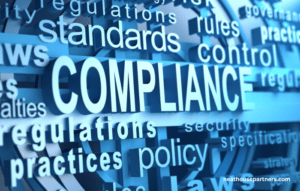Reporting and recording staff attendance is crucial for multiple reasons:
- it allows for effective workforce management,
- aids in identifying and addressing absence trends,
- ensures compliance with relevant legislation,
- and fosters a positive workplace environment by supporting employee well-being.
The best way to manage attendance includes accurately recording the number, length, and reason for each absence, implementing a structured system like a ‘trigger point’ or ‘review point’, adhering to anti-discrimination laws, especially concerning disability and pregnancy, and safeguarding sensitive employee data according to data protection regulations.
Using attendance reporting software can significantly streamline this process.
Understanding the Importance
Monitoring your staff’s attendance is not just about knowing when your employees clock in and out.
It’s about having a clear picture of everything related to hours worked and time off.
This data is crucial for understanding labour needs, auditing for regulatory compliance, and identifying holiday trends.
- Optimise Workforce: Understand labour needs and make cost-effective decisions.
- Identify Trends: Spot patterns of absence and address them proactively.
- Ensure Compliance: Stay aligned with relevant UK legislation, avoiding potential legal issues.
- Support Employees: By identifying the reasons for absence, you can provide the necessary support and adjustments, promoting a healthier and more inclusive workplace.
By managing attendance effectively, you gain insights into which employees are consistently present or absent.
This information helps in making informed decisions about staffing, identifying patterns of absence, and addressing any potential issues.
Not doing so can lead to increased costs associated with re-training, lost productivity, and diminished morale.
Types of Absence
When we talk about absence, it can be broken down into three main types:
- Sickness Absence: Recording this helps identify common reasons for sickness and address them, ensuring a healthier workforce.
- Authorised Absence: This includes holidays, public duties, or agreed time off.
- Unauthorised Absence: Instances where employees don’t show up for work without prior notice or a valid reason.
Differentiating between these absences helps you identify patterns and decide what steps to take.
For instance, the approach to a single long-term absence will differ from repeated short-term absences.
Best Practices for Recording Attendance
You should be recording the number, length, and reason for each absence.
This practice aids in identifying underlying causes of absence and deciding on the appropriate next steps.
For transparency and accuracy, consider implementing a ‘trigger point’ or ‘review point’ system.
Remember, it’s essential to avoid discrimination when recording absence.
Under the Equality Act 2010, you must not discriminate against employees, especially those who may have higher absence levels due to disability or medical treatment.
Taking steps such as recording pregnancy and disability-related absences separately can help in this regard.
Data Protection and Confidentiality
When dealing with sensitive medical details, adherence to data protection norms is non-negotiable.
Such information should remain confined to pertinent parties, backed by a legitimate rationale for retention.
Aligning with the mandates of the Data Protection Act 2018 is paramount, ensuring that the handling of personal data is both lawful and equitable.
This approach aligns with the principles of the Data Protection Act 2018, ensuring the lawful and fair processing of personal data.
Should You Conduct Return To Work Interviews?
Yes, conducting return-to-work interviews can be highly beneficial for both employers and employees.
These interviews help to:
- Understand the Reason for Absence: They provide an opportunity to understand the reasons for the absence and whether any further support or adjustments are needed.
- Identify any Work-related Issues: Discussing the absence can uncover if it was due to work-related stress or other workplace issues that need addressing.
- Support Employee Well-being: Demonstrating concern for the employee’s health and well-being can promote a supportive working environment and enhance employee relations.
- Reduce Future Absence: Addressing the issues leading to absence and providing necessary support can help in reducing future absenteeism.
- Comply with Company Policy: It ensures adherence to company policies regarding absence and demonstrates the employer’s commitment to managing absence effectively.
- Meet Legal Obligations: It helps employers meet their duty of care and other legal obligations under Health and Safety legislation and the Equality Act 2010.
Return-to-work interviews should be conducted in a sensitive and supportive manner, respecting the confidentiality of the employee.
They can be an effective tool in managing and reducing absence, fostering a positive workplace culture, and ensuring compliance with relevant legislation.
Practical Steps to Monitor Employee Attendance

Monitoring employee attendance requires a strategic approach.
Here are some practical steps to streamline this process:
- Implement Attendance Tracking Software: Employ technology to automate attendance tracking. This will reduce errors and save administrative time, allowing a focus on more strategic tasks.
- Set Clear Attendance Policies: Clearly communicate attendance expectations and policies to all employees. This includes procedures for reporting absences and the consequences of unauthorised absences.
- Regularly Review Attendance Records: Regularly reviewing attendance data helps in identifying trends, addressing issues promptly, and ensuring workforce optimisation.
- Engage in Open Communication: Encourage employees to communicate their reasons for absence. This fosters an open environment and allows for timely support and adjustments.
- Implement Flexible Working Arrangements: Where possible, offer flexible working options to accommodate diverse needs, thereby potentially reducing absence rates.
Things to be Mindful of When Monitoring Absence
Equality Act 2010: Be aware of the stipulations under the Equality Act 2010, particularly regarding employees with disabilities. The act prohibits discrimination and mandates reasonable adjustments for disabled employees.
Data Protection Act 2018: Any personal data, including attendance records, must be handled according to the Data Protection Act 2018. This includes ensuring data accuracy, limiting data processing, and maintaining confidentiality.
Employment Rights Act 1996: Familiarise yourself with the Employment Rights Act 1996, which lays out provisions for employee leave entitlements. It’s crucial to ensure that your attendance policies align with statutory leave entitlements.
Health and Safety at Work Act 1974: This act requires employers to ensure the welfare of their employees. A failure to record and address frequent absences may lead to neglecting employee well-being, which contravenes this act.
Being informed and considerate of these laws is not only about compliance but also about fostering a fair and supportive workplace. Regularly updating your knowledge and policies in line with any amendments or new legislation is also key to maintaining a lawful and harmonious working environment.
Summary
Reporting and recording staff attendance might seem like a mundane administrative task, but it’s a crucial aspect of managing your workforce.
Neathouse can support you with this with bespoke solutions, from formulating customised attendance policies and ensuring compliance with UK legislation to providing HR consultancy and integrating attendance tracking technology.
Our team’s expertise can help you to create a harmonious and compliant workplace, stay up-to-date on legislative changes, boast employee well-being, and optimise your workforce management.







